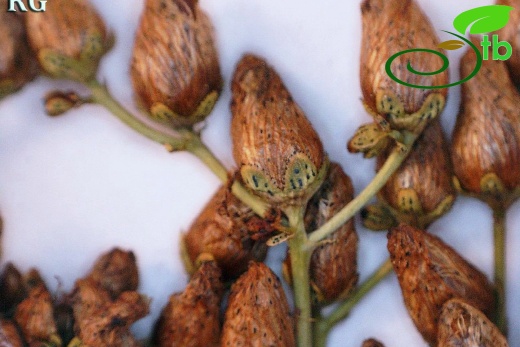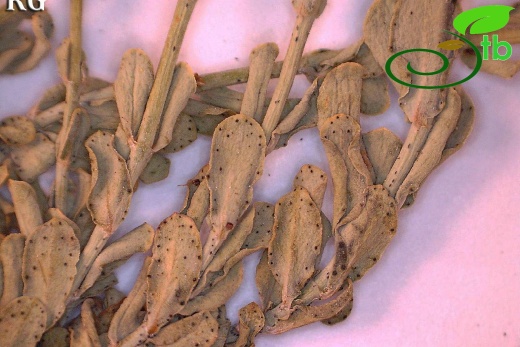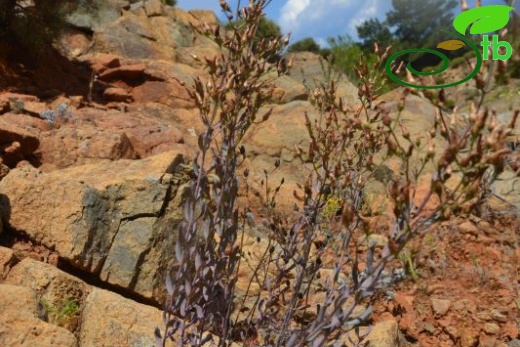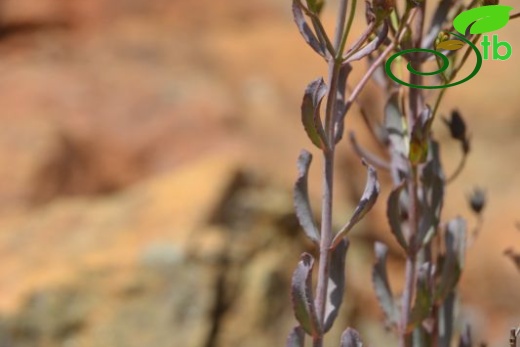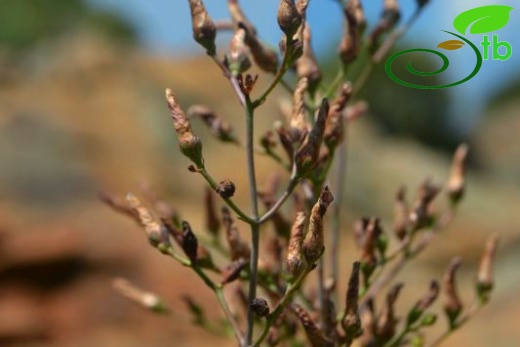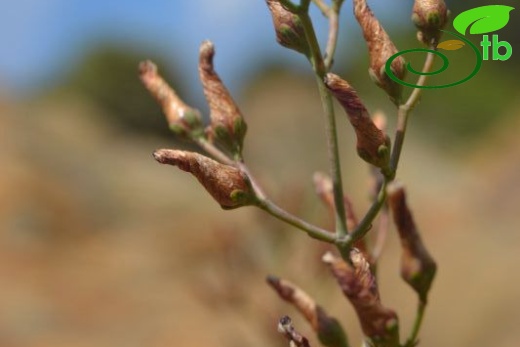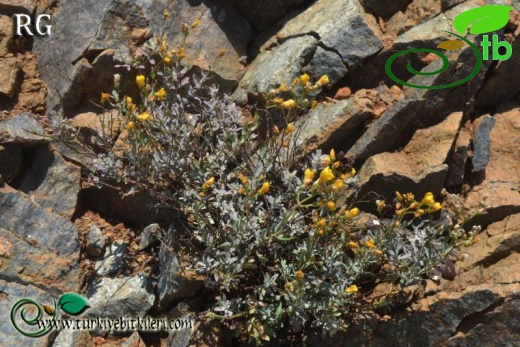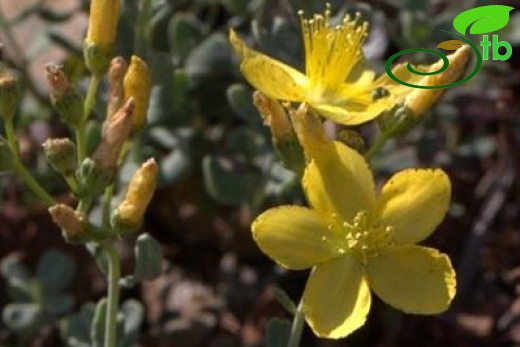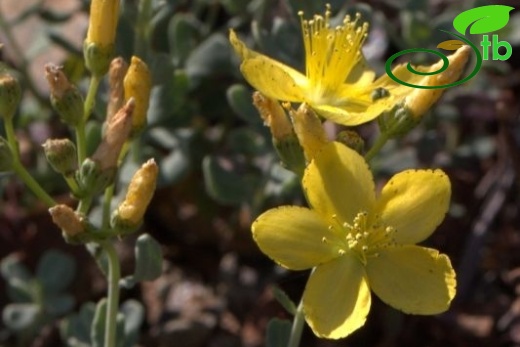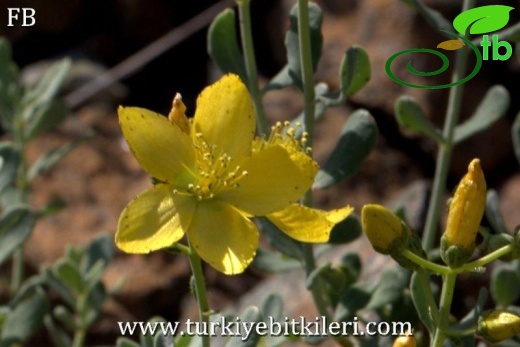Hypericum aviculariifolium
Hypericum aviculariifolium
Mideotu
Stems 5-60 cm, erect or prostrate, branching and sometimes rooting at the base, ± densely black-gland-dotted, glabrous or puberulous. Leaves 5-35 mm, oblong or linear to elliptic or obovate, with intramarginal and usually superficial black glands, glabrous or shortly pubescent. Sepals oblong to linear-oblong or lanceolate, acute to rounded, glandular-ciliate or with sessile glands, with numerous superficial black dots or streaks, glabrous. Petals 8-15 mm, with black marginal and black or amber superficial glands. Capsule 5-10 mm, with dorsal vittae and lateral vesicles.
A very polymorphic species, closely allied to H. organifolium. Although very difficult to classify satisfactorily, it can be divided as follows:
1. Stems scabrid to puberulous ………………………………..subsp. byzantinum
1. Stems glabrous
2. Leaves shortly pubescent; petals usually with some black glandular streaks .....subsp. uniflorum
2. Leaves glabrous to papillose-puberulous; petals with black glandular dots only
3. Stems usually erect, 30-60 cm; leaves oblong to linear ; inflorescence many- flowered, pyramidal to narrowly cylindric
4. Sepals ribbed, obtuse to rounded or glandular-mucronate; leaves 20-35 mm; petals sometimes white or pinkish …….subsp. aviculariifolium var. albiflorum
4. Sepals plane, acute or subacute; leaves 10-20 mm; petals always yellow, sometimes red- tinged ….subsp. aviculariifolium var. aviculariifolium
3. Stems usually decumbent to prostrate, 5-20 cm; leaves oblong or elliptic to obovate ; inflorescence 1-many-flowered, pyramidal or cylindric to subcorymbose
5. Stems suberect to ascending; inflorescence usually pyramidal to cylindric, many-flowered .subsp. depilatum var. depilatum
5. Stems decumbent to prostrate; inflorescence usually subcorymbose to 1-flowered
6. Sepals acute ………………………………….subsp. depilatum var. leprosum
6. Sepals obtuse ...........subsp. depilatum var. bourgaei
Endemic. E. Medit. element.


